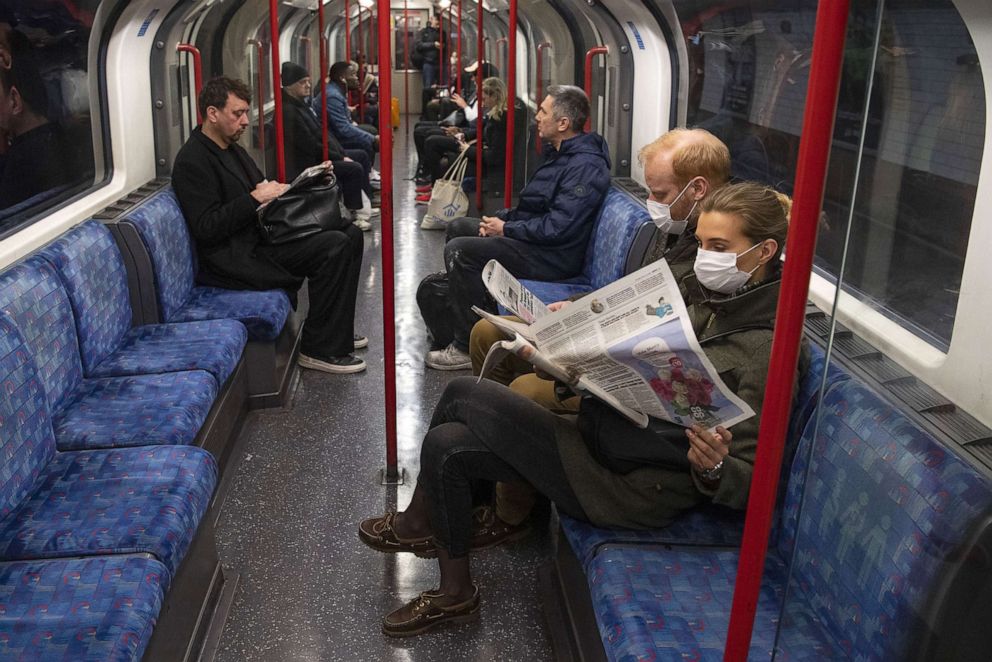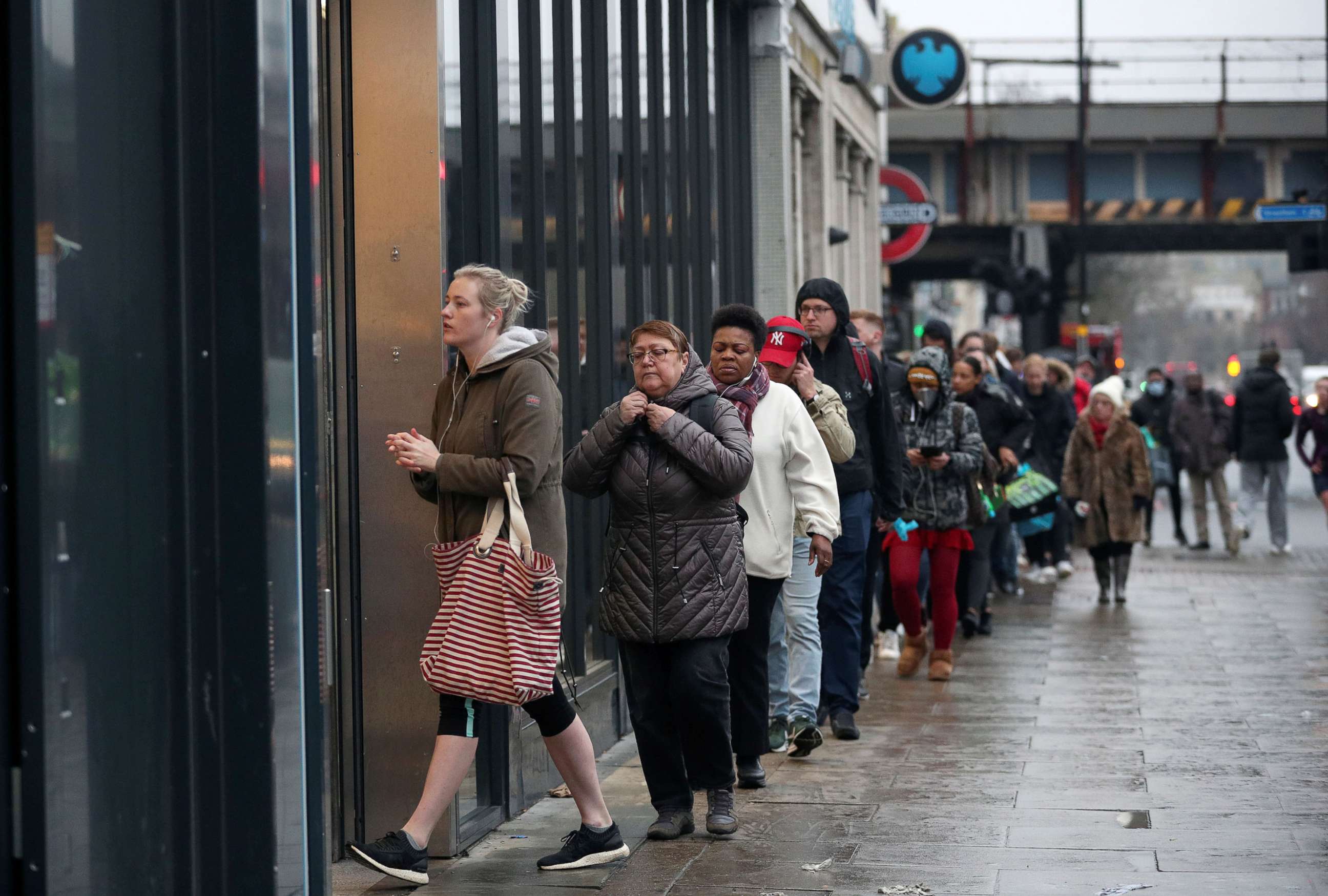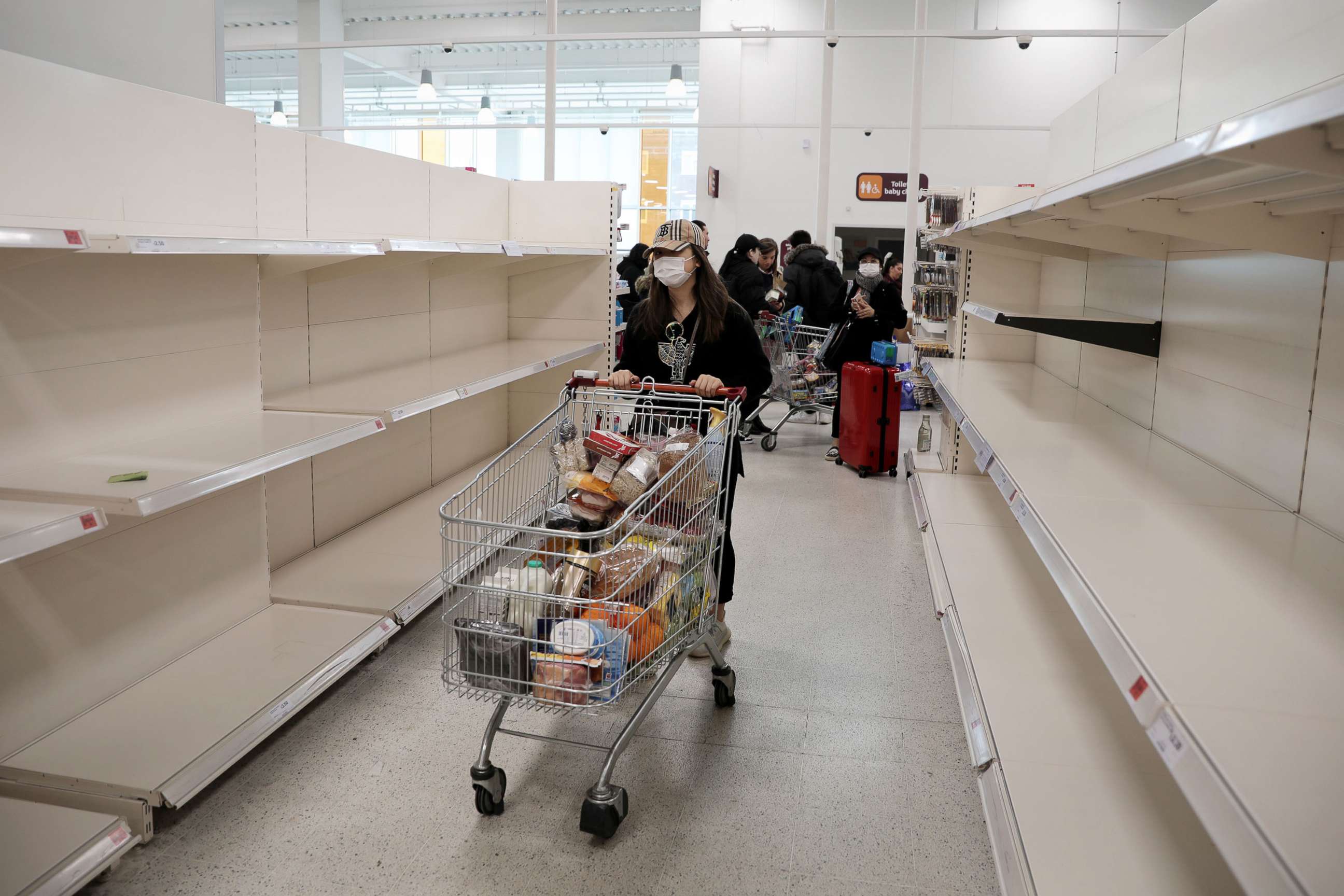UK announces closure of bars, restaurants and cafes to combat coronavirus
A government order has asked they shutter "as soon as they reasonably" can.
LONDON -- The U.K. government has ordered that cafes, bars and restaurants must close "as soon as they reasonably" can to combat the coronavirus outbreak.

What to know about Coronavirus:
- How it started and how to protect yourself: Coronavirus explained
- What to do if you have symptoms: Coronavirus symptoms
- Tracking the spread in the US and Worldwide: Coronavirus map
Prime Minister Boris Johnson announced the sweeping measures at a press conference Friday, as government guidelines, which advised residents 70 or older, medically vulnerable groups and those with symptoms to self-isolate, were being ignored, particularly in the capital.
The U.K. is set to follow other major European countries by shutting down pubs, restaurants and bars, with other spaces like cinemas and gyms likely next. Johnson did not provide a timetable as to when they might reopen, although restaurants delivering food can continue.
"We want you to stay at home to protect the NHS and save lives," Johnson said. "I know it goes against the freedom-loving instincts of the British people. But we will get through this together, and we will beat this virus."
There have been at least 3,269 positive cases in the U.K. and 144 deaths.
The move to reduce the number of social gatherings came after the prime minister thanked many citizens on Thursday for following the government's advice so far, saying that "ruthless, determined collective action" as well as "scientific progress" were key to combatting the spread of the virus.
The government also published the scientific advice it received from the Scientific Advisory Group for Emergencies, which suggested that social distancing measures need to remain in place for "most of the year," despite the prime minister suggesting that by following the guidelines the U.K. could "turn the tide" on the coronavirus outbreak within 12 weeks.
Earlier this week, the British government moved to close all schools and colleges until further notice, and 40 subway stations have been closed in the capital to reduce unnecessary travel.
The prime minister's briefings were introduced amid criticism that the government has not been transparent enough in its handling of the pandemic.
On Monday, the government announced a massive economic relief package to shore up the economy. Chancellor Rishi Sunak described it as an "economic emergency" and said he was willing to go further to support businesses and individuals if needed.
And the chancellor announced more financial help for workers, with the government set to pay 80% of wages for employees who are not working, up to $3,000 a month, amid fears of rising unemployment.

Meanwhile, the government has proposed a law that would grant lawmakers sweeping new powers to deal with the threat posed by the virus. The law seeks to ease the administrative burden on health workers dealing with the virus, strengthen the government's powers to reduce unnecessary social contacts and gatherings and give quarantine powers to police and immigration officers to briefly detain a person who may be infected.
The government has said the new measures will "only be used when strictly necessary."
The law is expected to be passed by lawmakers in a parliamentary vote on Monday and stand for two years. The leader of the opposition Labour Party, Jeremy Corbyn, wrote to the prime minister on Wednesday to call for a fresh vote on the law every six months.

With the major changes to life seen in other European countries and the United States now beginning to take place in the U.K., major supermarkets have been forced to issue restrictions on purchases of key items. The government has also moved to assuage further fears that Britain’s National Health Service will be unable to cope with demand by calling on private companies to assist in ventilator production.
The Ministry of Defense announced that 20,000 personnel have been placed at a level of "higher readiness" to support public services in response to the outbreak and that army reservists may be called up to assist in the collective effort.
"The men and women of our armed forces stand ready to protect Britain and her citizens from all threats, including COVID-19,” Ben Wallace, the secretary of defense, said in a statement. "From me downwards the entirety of the Ministry of Defense and the armed forces are dedicated to getting the nation through this global pandemic."




